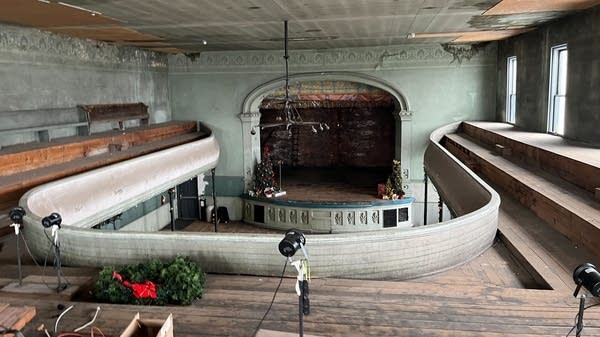Ryan Coogler's "Sinners" is a masterpiece in filmmaking — and dealmaking
Ryan Coogler released a 10-minute video last month explaining how “Sinners” can — and should — be viewed on the big screen.

The Delta blues-infused vampire film “Sinners” starring Michael B. Jordan keeps raking it in. After bringing in more money at the box office in its first weekend than any film since before the pandemic, its second weekend was almost as strong — a rare achievement.
For a business program like this, let's focus here on the rare deal that “Sinners” director Ryan Coogler won from the studio and how the film’s marketing aims to get people back in theaters.
“Marketplace Morning Report” host David Brancaccio consulted with Dan Runcie, the founder of media research firm Trapital, which analyzes the intersection of business and culture. The following is an edited transcript of their conversation.
David Brancaccio: The idea was to get people into real theaters. I don't know if you saw this 10-minute video in which the director, Mr. Coogler himself, makes the pitch. Here's a little piece:
Ryan Coogler: For select sections of the film, sections of emotional intensity, musical intensity or horror intensity, we chose to film those sequences with a bigger aspect ratio, and the film will pop out and expand for those moments — be a really, really immersive way to watch the movie.
Brancaccio: That's part of this, getting people not to wait for streaming, getting them into theaters, and it seems to be working, right?
Dan Runcie: That 10-minute clip was some of the best marketing that you could possibly do for a movie like this. Coogler is someone that a lot of people have season tickets to. He's a director that can bring in box office. He's done this with franchises, his own original IP, as well. So people were really excited about "Sinners."
Brancaccio: The director has set up for himself a very interesting deal worth remarking upon because most directors don't get this: He starts to earn money when the first ticket is sold, he doesn't have to wait.
Runcie: That's right. There's three things that make Coogler's deal stand out. First, as you mentioned, he has first-dollar gross, so he starts making money from the first dollar that comes in — which is very different from most directors, where even some of the higher-profile names, maybe they'll get their money after the theaters or other distributors get their cut or back-end profits. But no, he's getting first-dollar cut there. He's also getting final cut on the actual film itself; that's something that not all directors get. And the rights revert back to him after 25 years.
Brancaccio: So do you think the deal that Ryan Coogler has gotten for this film makes studio executives uncomfortable?
Runcie: Whether it makes studio executives uncomfortable, I can't necessarily speak to, but I can say that it doesn't necessarily stand out from the unique deals that other top directors get. If you dig into the numbers that James Cameron has gotten for films like "Avatar," what [Christopher] Nolan got for "Oppenheimer," even some of Spielberg's stuff, or specifically Quentin Tarantino with "Once Upon a Time in Hollywood," if you're a director at that level, these type of deals become table stakes. And I do think that Ryan Coogler, especially for someone that's as successful as he is — his movies have brought in over $2 billion thus far into his career — that's the level that he's at.








!["I think [AI] is really cool. There is stuff out there that is fun to watch," said Bella Falco of Denver, Colorado. "There are also things that starting to really scare me, like fake creators."](https://img.apmcdn.org/cb0a9a7e54db934026285b941f4b74ded3dab5ea/widescreen/53f6b2-20251113-bella-falco-sitting-on-a-striped-couch-with-a-mug-600.jpg)





